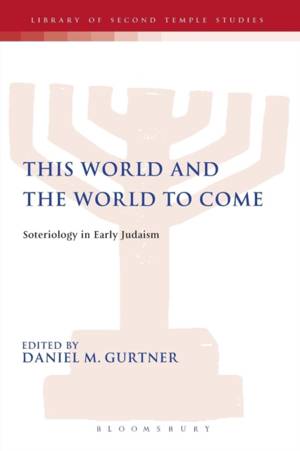
- Afhalen na 1 uur in een winkel met voorraad
- Gratis thuislevering in België vanaf € 30
- Ruim aanbod met 7 miljoen producten
- Afhalen na 1 uur in een winkel met voorraad
- Gratis thuislevering in België vanaf € 30
- Ruim aanbod met 7 miljoen producten
Zoeken
Omschrijving
Did authors of Second Temple texts concern themselves with 'salvation'? If so, on what terms? What does one need 'salvation' from? Are the parameters of who is included in or excluded from 'salvation' defined? Gurtner's vision in compiling this collection is to gather contributions on a single topic as it is addressed in individual books from the Second Temple period. Working from a sound methodological basis the contributors assess the theme in different books, acknowledging that the approaches in each text are different, depending on issues of genre and provenance. This allows an acute comparison of how this topic is present across a myriad of Second Temple Jewish texts. Throughout the course of the work the notion of "soteriology" is very broadly conceived. Whilst acknowledging the obviously Christian connotation of the term 'soteriology' the volume similarly acknowledges the usefulness of the term as an heuristic category for careful analysis.
Specificaties
Betrokkenen
- Auteur(s):
- Uitgeverij:
Inhoud
- Aantal bladzijden:
- 384
- Taal:
- Engels
- Reeks:
- Reeksnummer:
- nr. 74
Eigenschappen
- Productcode (EAN):
- 9780567446923
- Verschijningsdatum:
- 23/05/2013
- Uitvoering:
- Paperback
- Formaat:
- Trade paperback (VS)
- Afmetingen:
- 156 mm x 234 mm
- Gewicht:
- 539 g

Alleen bij Standaard Boekhandel
+ 179 punten op je klantenkaart van Standaard Boekhandel
Beoordelingen
We publiceren alleen reviews die voldoen aan de voorwaarden voor reviews. Bekijk onze voorwaarden voor reviews.







